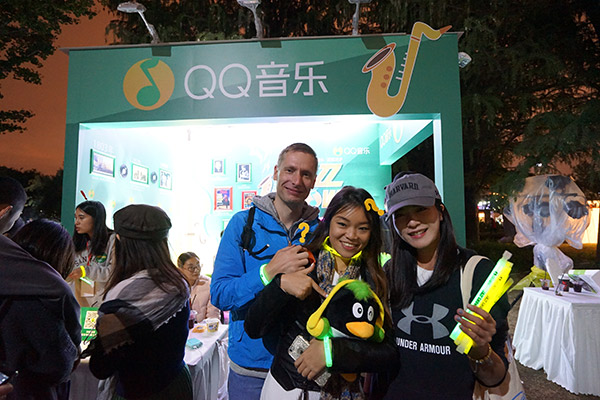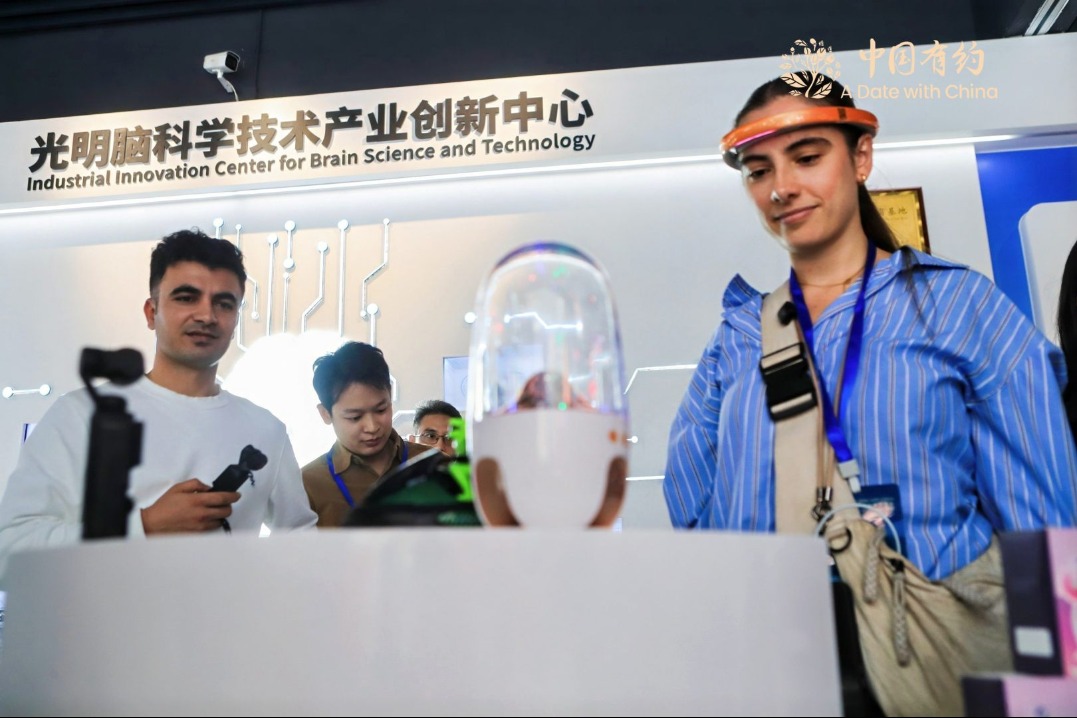QQ Music helps revive lyrics of the past


For Zhu Xiaofeng, an expert at the Dunhuang Research Academy, studying the ancient Buddhist paintings in the Mogao Grottoes in Gansu province is a lifetime's work.
Zhu has spent many years in the caves recording and studying the wall paintings, which contain musical elements such as ancient instruments and performance scenes. Such paintings appear in almost half of the 492 caves in the southern Mogao Grottoes.
"Almost all the instruments that have appeared in China's history can be found in the Mogao Grottoes paintings. So much so, some instruments found in the caves don't appear in any record of the nation's history," Zhu said.
"That's why I hope that more and more people, especially young people, can learn more about this gorgeous music culture," he said.
In the past few months, Zhu's wish has started to come true much quicker than he expected, with the help of QQ Music.
The music unit of Chinese internet giant Tencent Holdings Ltd has partnered with the Dunhuang Research Academy to launch a competition to reproduce ancient music as represented in the caves of Dunhuang.
Five wall paintings were selected from the Mogao Grottoes for the competition, based on which contestants can compose music or lyrics. According to Zhu, the five wall paintings were picked out carefully from the 6,000 that decorate the grottoes. Each of them covers a different time of the history and displays unique features of a certain period.
"Through such an easy-to-access activity, we hope to let more young people learn more about and fall in love with the precious ancient culture of Dunhuang, to gradually inherit it for themselves, and finally to spread it to more people," said Chen Feifei, head of QQ Music marketing and communication.
"At the very beginning, one problem that we kept considering was how to combine these two totally different cultures-a historical and cultural relic with more than one thousand years of history, and a modern and trend-setting music platform where the majority of users are youngsters," Chen said.
To tackle this challenge, QQ Music first transformed and simplified the ancient music scores, which are hard to understand, she said.
As part of a broader cooperation between the Dunhuang Research Academy, QQ Music and the Shanghai Conservatory of Music, the program will then invite well-known composers, experts and actors in the field to reproduce the traditional music professionally.
Zhu said both the academy and Tencent hold a "very open" attitude toward the competition.
"To better tap the young generation's talents, we will not have any limitations on the musical style, genre or instruments," said Zhu. "You can even play it with an electric guitar so long as the song keeps the basic knowledge and essence of the Dunhuang music."
"We don't mind breaking the traditional way of playing music and hope to bring some new perspectives and elements to the ancient culture," he said.
Zhu said he spends almost every day in the caves to record music-related images in the wall paintings, be it a flying apsara playing the pipa-a four-stringed traditional Chinese music instrument-or a dancer performing to ancient music.
Zhu's workload is so vast that he has only completed his research in four caves in the past year.
"At such a speed, I would have to spend 120 years to finish all the work. It's impossible for me to do it alone," said Zhu. "I hope that the cooperation with QQ Music will present a new model for cultural publicity and speed up our cultural protection."




































